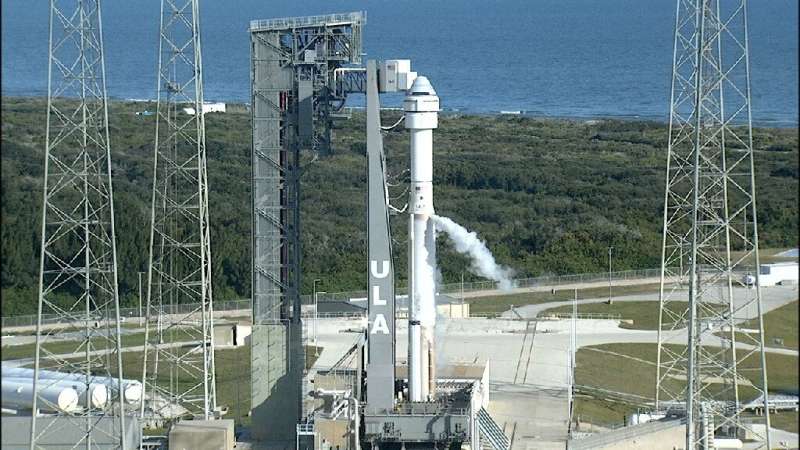This photo obtained from NASA on December 17, 2019 shows Boeing's CST-100 Starliner spacecraft as it sits atop a United Launch Alliance Atlas V rocket at Cape Canaveral Air Force Station's Space Launch Complex 41 in Florida on December 5, 2019, for the program's first-ever Integrated Day of Launch Test the following day. Everything is ready in Cape Canaveral, Florida for the launch of the Boeing astronaut capsule, Starliner, which will take a model, Rosie, to the International Space Station, nine months after a similar SpaceX mission. The two companies have been paid by NASA to develop taxis for astronauts to provide round trips between the United States and the station (ISS), a function that only the Russians have fulfilled since the end of the American shuttles in 2011 .
An unmanned test mission of Boeing's Starliner space capsule, which is eventually to transport astronauts to the International Space Station, has had to be postponed, NASA said Monday.
The test, which had previously been postponed until early April, will suffer another delay, this time due to unprecedented cold temperatures in Texas that caused extensive power outages in the southern US state.
"We did lose time with the weather in Houston. We lost about a week of time," said Steve Stich, the manager of NASA's Commercial Crew Program, during a press conference.
NASA is "continuing to evaluate options" for the new test date.
The Starliner's first crewed flight is currently scheduled for September, Stich added.
During an initial test flight in December 2019, the Starliner capsule failed to dock at the ISS and returned to Earth prematurely—a setback for aerospace giant Boeing.
Since then, its program has fallen far behind SpaceX, the other company—owned by Tesla CEO Elon Musk—chosen by NASA to develop a vessel to transport astronauts to the ISS.
SpaceX's Crew Dragon capsule already carried astronauts to the station in June and November 2020. Four other astronauts, including Frenchman Thomas Pesquet, will return to the ISS in April.
© 2021 AFP























